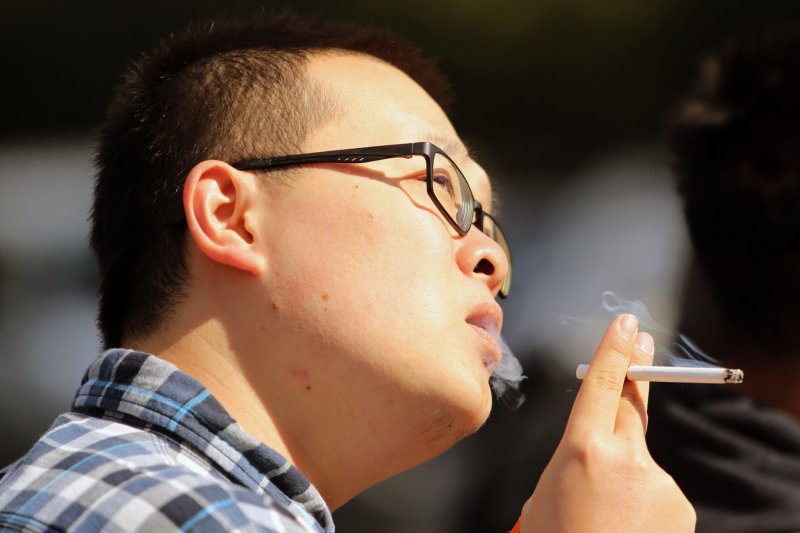A new study has found that children can inherit drug protection and tolerance from their fathers who were habitually exposed to nicotine. File Photo by Stephen Shaver/UPI |
License Photo
Feb. 14 (UPI) -- Researchers from the University of Massachusetts Medical School determined that a father's nicotine use may provide drug protection in his offspring.
In the study of mice, researchers found that children born to nicotine-exposed fathers inherit enhanced chemical tolerance and drug clearance abilities.
"Children born of fathers who have been exposed to nicotine are programmed to be not only more resistant to nicotine toxicity, but to other chemicals as well," Dr. Oliver J. Rando of the UMass Medical School and co-author of the study said in a press release. "If a similar phenomenon occurs in humans, this raises many important questions. For example, if your father smoked, does that mean chemotherapy might be less effective for you? Are you more or less likely to smoke? It's important to understand what information is specifically being passed down from father to offspring and how that impacts us."
Previous studies have shown a link between the environmental conditions of parents and their effect on disease risk in children.
Rando and his team set out to determine whether the response in offspring is specifically from paternal exposure or if it is a generic response to a father's overall quality of life.
The researchers tested mice exposed to nicotine and their offspring and found that the offspring born to nicotine-exposed fathers were protected from toxic levels of nicotine compared to mice from fathers who were never exposed to nicotine. Researchers then tested other chemicals on the offspring such as cocaine and found that the offspring of nicotine-exposed fathers were also protected from cocaine.
The multi-toxin resistance is caused by enhanced drug metabolism in the liver and is linked to an increase in expression of genes responsible for drug metabolism.
"This demonstrates that 'dad' paints with very broad brush strokes," Rando said. "Fathers exposed to nicotine do not specifically program changes in nicotine receptors in their children, as these children are broadly resistant to multiple toxins."
The study was published in eLife.















